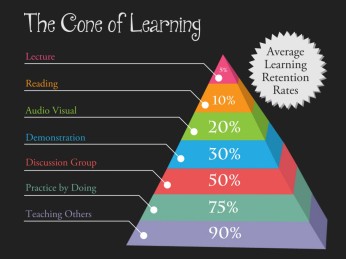Recently, a school in Chennai, India, was in the spotlight for the wrong reasons. They had come up with a differential fee structure. The deal offered by the school was this: “Students willing to pay more than a specified amount will have access to 59 different advanced educational activities.” This shocked many sections of the education fraternity. There was widespread anguish, with most of them putting forward the same question “Why this inequality?“
The notion of equality in schools
More than anything else, schools have the responsibility to treat their children with fairness and equality. Children come from diverse social and economic backgrounds. This is because some parents would have given it their everything to ensure that their child went to a ‘good’ school. To some wealthier parents, it may not have been all that difficult to pay the school fees and enroll their children in these schools. Whatever be their economic background, it is the desire of every parent to send their children to these ‘good schools’. However rich the parents may be, one of their major concerns when deciding on the right school is more or less determined by the value system pervading the school environment. The not-so-rich parents put their children in these expensive yet ‘good’ schools with the expectation that their children be exposed to multitude of experiences, both in academia and character education.
Ask anyone what the best time of their life was, and they will most likely relate to their school life. It is perhaps the only journey where we experience and realize the purity of joy while we are at it. Because as children, we cherish the good moments without any reservations or expectations of a better setting. (I have heard so many of my colleagues and friends exclaim that they realized how enjoyable their college life was only after they started working!) During this joyous journey, there are friendships to be built and qualities to be learnt, between this heterogeneous bunch of young and energetic minds. Schools, knowingly or unknowingly, celebrate and leverage this heterogeneity for skill development, value education, knowledge sharing and what not!
The power of “Peer Effect”
During my school days, I learnt a wonderful lesson from my affluent friends. In the beginning, I used to assume that the rich were arrogant, and chose their friends carefully. But I used to look at their school bags, their pencils, their lunch boxes and even the lunch that they brought with a lot of awe. Invariably, I would go back home and pressurize my parents to get those fancy items so that I could be on par with them. My parents never refused to buy me anything. Though difficult, they would get everything that I desired with a smile on their face. However, deep inside, I realized that some of my friends were just too rich. But the surprising thing was, none of these friends ever showed any discrimination. They behaved the same with me as they would with their other wealthy peers. They were warm, and slowly I started feeling that money or luxury was not so important after all.
The school management plays a crucial role in defining some of these values that are practiced and endorsed. I always had the feeling that everybody were treated with equal importance within my school premises. At least, I cannot point to any instance where me or any of peers had any issue at all on this front. A lot of credit should also be given to the parents of these children, for raising them with good values. I cannot deny the fact that I cherished my school life, thanks to all my friends, teachers and the school management, for the values that they had endorsed and upheld.
In the early years of their childhood, children spend more time with their peers than they do with their parents. According to me, peer relationships define the personality of children in the long run. During these formative years, students must be taught compassion, collaboration, empathy and equality by their own peers. Parents and teachers have the responsibility to package these qualities carefully and deliver these priceless lessons through an effective channel, which is children themselves. This has also been proved by research, through a popular paradigm, called the “Cone of Learning”. Children tend to retain 90% of the information they learn from their peers! Most of us who went to college will agree to this. We used to teach/learn from our friends an hour before the exam and crack the exam with ease!
Peer learning is a vital tool to leverage in the classroom. It makes the life of a facilitator so much easier. But peer learning happens only in environments that motivate the children emotionally and socially. The notion of diversity is also very important. Children should be made to celebrate their uniqueness and to believe that they have something to offer and learn from their peers. An environment encouraging mutual respect is a must.
Hence, we are startled by the decision of the management to introduce a differential fee structure in their school. The school management tried to break the diversity among the children, rather than to embrace it. Children would have been divided on the basis of some wrong parameters, in this case. Students who cannot access these ‘advanced educational activities’ due to financial constraints will feel deserted by their own friends. They will start seeing their friends from a different perspective. Who knows, they may even start envying each other for the wrong reasons, and may end up developing superiority and inferiority complexes. These are lessons that the curriculum can safely do without. The worst gift we can give these children is rejection by their own peers. They should, after all, stand tall amidst their friends and classmates. Do the school management realize that this fee structure will drastically change the perspectives of the children and parents in the long run?
School managements have a crucial role to play in shaping education. As Simon Sinek’s golden circle iterates, the ‘Why’ of things is the most important for any organization. What does the school management believe in? I sincerely hope that today and in the future, these managements are motivated by the right ‘why’ in starting their own schools. They must remember that the Gurukula tradition was successful only because every child was treated equally. Even the princes had no extra privileges. Can we not desire this at least within the same school?
Parents undoubtedly have an equal role to play as well. It was good to see the parents and teachers unite and fight against this meaningless fee structure. However, it is time that they played proactive roles in the education fraternity. Teachers alone cannot bring about a positive change. They need the support of parents. They need parents who can spend more time with their children, understand their aspirations and communicate their needs to the teachers.
To me, this is more important than net neutrality. Let’s not pollute the thoughts of these future civil servants, entrepreneurs and philanthropists.









